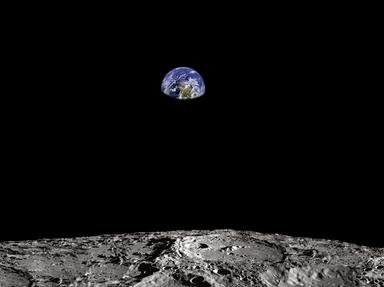
How Infinitesimal We Are Trivia Quiz
Man In Space
In all of space we are but infants. As occupants of this planet, we try to learn some of the mysteries of the vastness that surrounds us. This quiz asks you to place some space exploration events in the order in which they occurred.
A classification quiz
by ncterp.
Estimated time: 3 mins.